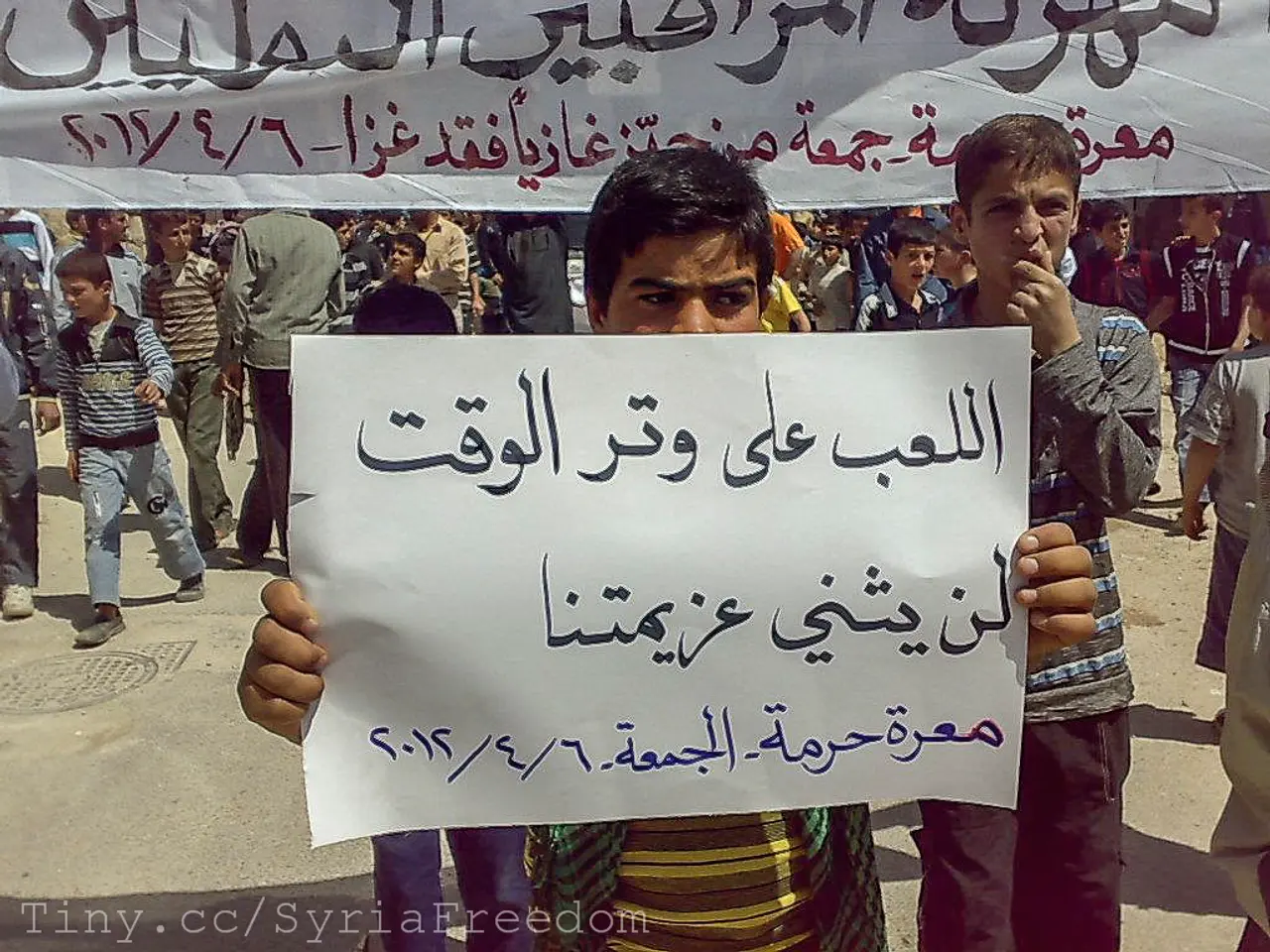Amended announcement: The Romanian administration has reduced the allowance for employees subjected to detrimental work environments.
Romania's public sector employees are taking to the streets in protest against the government's newly approved emergency ordinance, which caps the hazardous work bonus. The demonstrations, ongoing for the second day on July 1, have been sparked by the ordinance that sets a monthly gross limit of 300 Romanian lei (RON) for the bonus, effective from July 1, 2025, until December 31, 2026.
The ordinance, part of broader government efforts to reduce public spending and manage the budget deficit, has been met with strong opposition from trade unions representing various public sector workers. The unions argue that the cuts were imposed without adequate consultation and that they diminish employees’ earnings.
The changes affect employees of Bucharest City Hall and the Bucharest Court of Appeal, among others, who are among those protesting. Under the new regulations, public employees working under hard, dangerous, or harmful conditions will receive a supplementary annual leave of 3 to 5 days, depending on the severity of the conditions, in accordance with Law no. 31/1991. However, this provision may not fully offset the capped bonus, especially for those previously receiving larger bonuses.
The strong reaction from trade unions, including protests and strike threats, suggests potential disruptions in public services if the government and unions do not reach an agreement. Demonstrators are warning of potential shutdowns of public services and delays in paying pensions and public sector salaries. The protests are taking place in several cities across the country.
The new fiscal measures, aimed at ensuring prudent fiscal policy and medium- and long-term sustainability, took effect on July 1, 2025, and will remain in place until December 31, 2026. The decision was made during a government meeting on Monday, June 30. Contrary to earlier discussions, the National Agency for Fiscal Administration's Antifraud Directorate will not be divided into county-level branches but will continue to operate through regional structures.
The ordinance reflects the government’s push to control public finances but also highlights rising tensions between the administration and civil servants demanding fair compensation for hazardous work. Public employees who work in hazardous conditions will see a reduction in monetary compensation, potentially affecting morale and financial wellbeing. The new regulation sets the duration of additional paid leave between three and five working days, down from the previous maximum of ten.
Sources: [1] Agerpres, "Protestat la București în fața Palatului Parlamentului", Agerpres, July 1, 2025,
[2] Romania-Insider, "Romania's public sector workers protest against capped hazardous work bonus", Romania-Insider, July 1, 2025,
[3] Ziarul Financiar, "Government approves changes affecting public sector employees", Ziarul Financiar, June 30, 2025,
[4] HotNews, "Protestat la București în fața Palatului Parlamentului", HotNews, July 1, 2025,
[5] Digi24, "Proteste în România: Angajatii publici cer să nu reducă premii pentru muncă periculoasă", Digi24, June 30, 2025,
- The ongoing protests from public sector employees in Romania demonstrate a critical juncture where finance, business, and politics intersect, as trade unions challenge the government's decision to cap the hazardous work bonus, raising concerns about the impact on employees' earnings and potential disruptions in public services.
- The approval of the emergency ordinance in Romania, designed to manage the budget deficit and reduce public spending, has generated controversy in the general-news sphere, with unions asserting that the cuts to hazardous work bonuses were imposed without adequate consultation and may adversely affect public employees and the overall functioning of certain public services.




